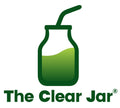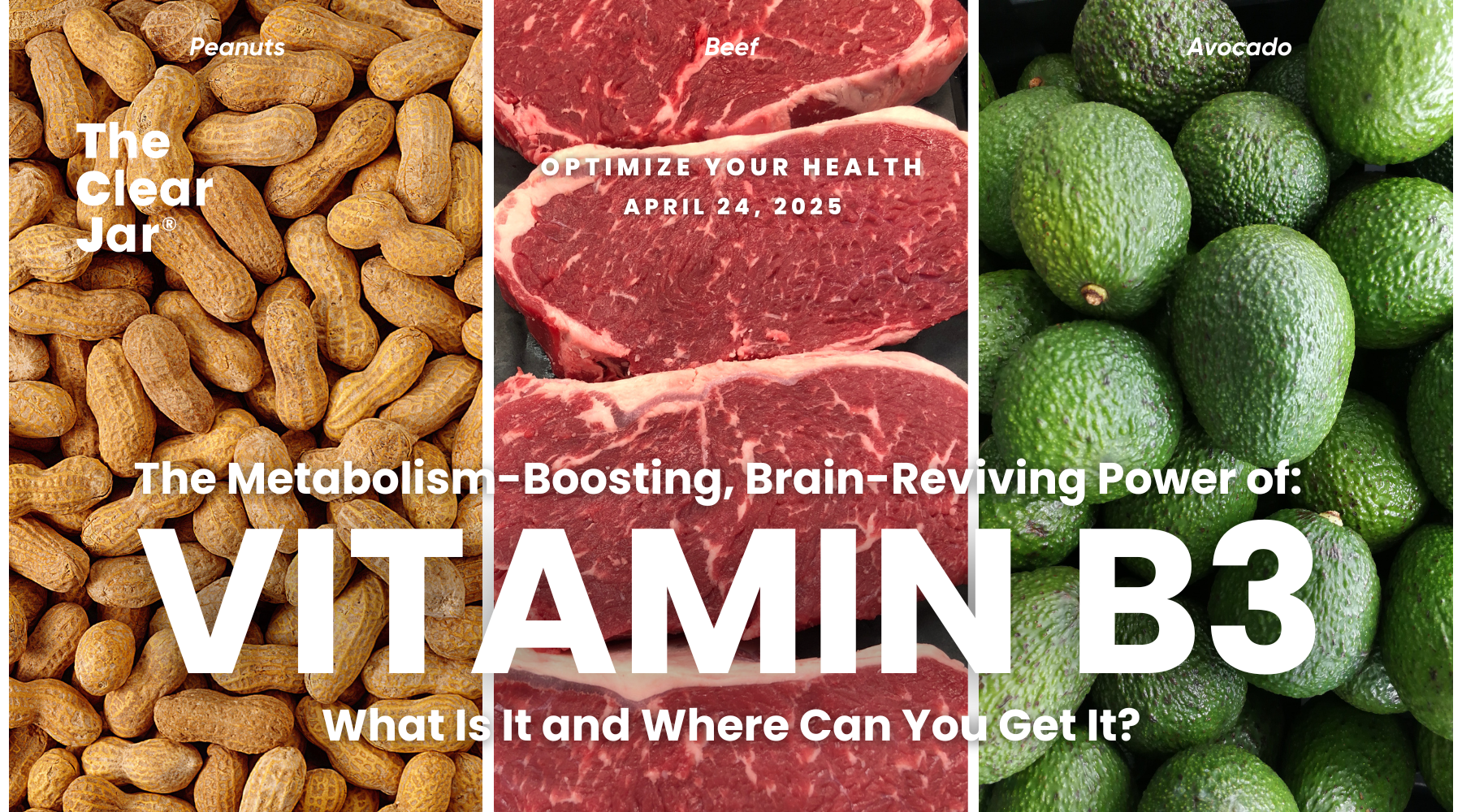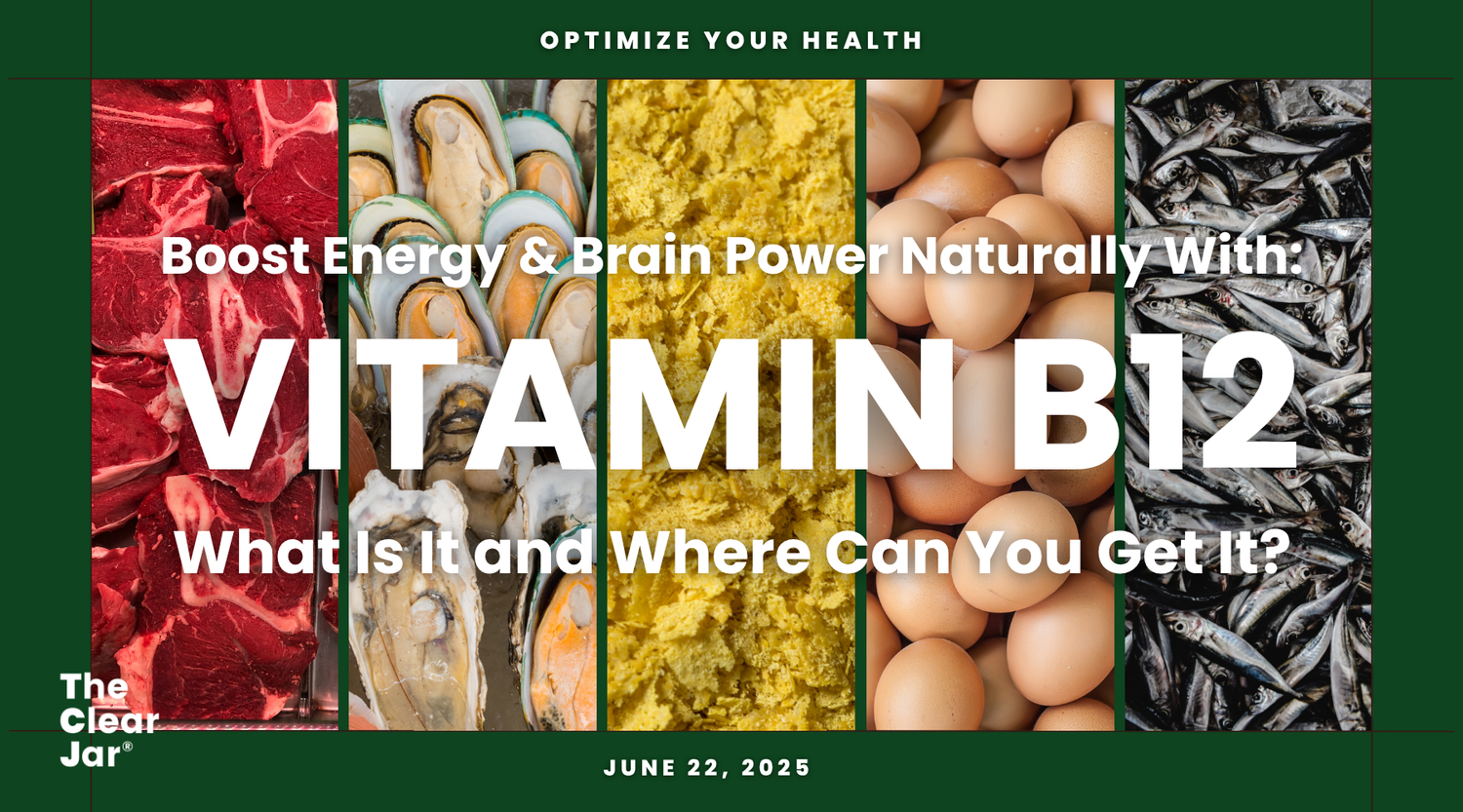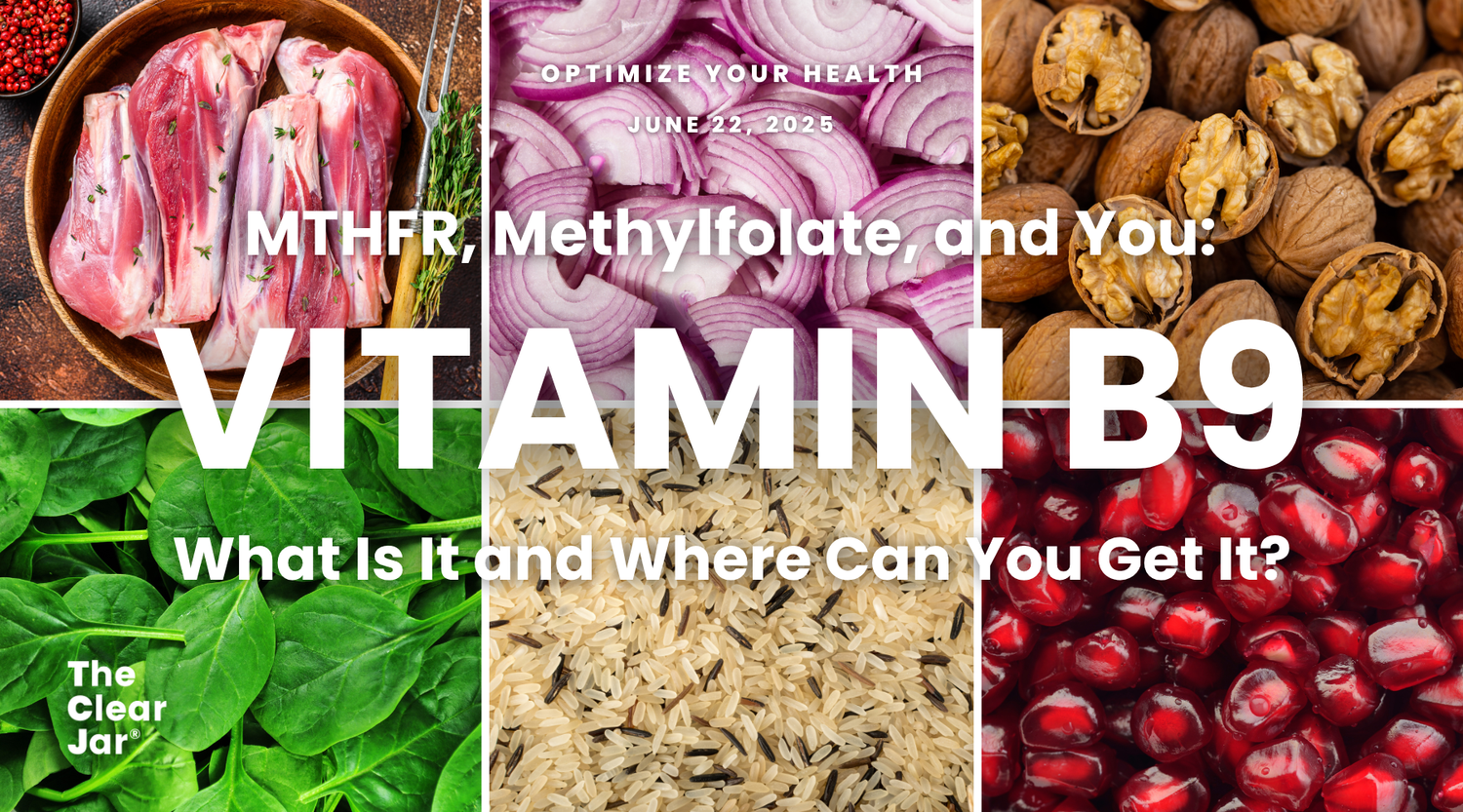Vitamin B3 or niacin is one of the eight essential B vitamins that comprise the B-vitamin complex. It has two main forms and is critical for breaking down fats and proteins in the body. Here, we explore its importance for human health and why you might need to supplement your intake.
Content Outline
- What is Vitamin B3?
- What is the function of Vitamin B3 in the human body?
- Vitamin B3 forms: Which is the active form?
- Vitamin B3-rich foods
- Vitamin B3 recipe: Grilled salmon with avocado and quinoa salad
- Vitamin B3 supplements
- Why buy food-borne vitamins?
What is Vitamin B3?
Vitamin B3 is a water-soluble B vitamin that is naturally present in many foods, but it is available as a supplement and is added to some foods as a fortifying agent. It is also known as niacin and is important for releasing the energy you get from food.
Vitamin B3 is used by your body to make nicotinamide adenine dinucleotide (NAD) and nicotinamide adenine dinucleotide phosphate (NADP). NAD and NADP are coenzymes that are important for releasing energy from food.
Niacin is a water-soluble vitamin, so your body cannot store it and will excrete any excess amounts that are not needed in your urine. Most of the vitamin B3 your body needs will come from your diet, but you can also make it using a specific amino acid called tryptophan – commonly found in protein-rich foods such as chicken and turkey1.
What is the function of Vitamin B3 in the human body?
All B vitamins, including vitamin B3, are involved in converting carbohydrates in your food into energy in the form of glucose. These are also referred to as B-complex vitamins and have several other roles in the body, including breaking down fats and proteins, promoting liver and skin health, and supporting nervous system function.
Some of the functions of vitamin B3 are:
- Energy production – niacin is a crucial precursor for the coenzymes NAD and NADP which are essential for several metabolic processes, including energy production2.
- Cardiovascular benefits - vitamin B3 may improve blood fat levels by increasing HDL or good cholesterol by 25%3 and reducing LDL (bad) cholesterol and triglyceride levels. Further research has suggested that combining nicotinic acid with statin therapy can reduce atherosclerosis in the carotid artery within one year4.
- Brain function - Research shows that niacin supplementation can improve mitochondrial function and several other important neurological pathways in the brain5. Because of its anti-inflammatory benefits and its ability to boost mitochondrial function, niacin supplementation may be beneficial for improving quality of life and motor symptoms in Parkinson’s disease patients6.
- Skin health - niacin can strengthen the skin’s protective barrier, reduce inflammation and improve its overall appearance. Topically applied vitamin B3 is also known to improve skin surface structure and smooth out wrinkles7.
- Osteoarthritis - increased vitamin B3 intake may reduce pain and improve function in knee osteoarthritis, particularly in middle-aged, individuals, women, and people who follow certain diets8.
- DNA repair – when in its active form, NAD, niacin is important for DNA repair and genomic stability. It acts as a precursor for the enzyme poly(ADP-ribose) polymerase-1 (PARP-1), which is critical for DNA damage repair and maintaining the integrity of your genome9.
Vitamin B3 forms: Which is the active form?
Vitamin B3 exists in several forms, each with unique properties and benefits, The two major metabolically active forms of vitamin B3 are nicotinic acid and nicotinamide, which are both converted into NAD, an important coenzyme for energy metabolism.
|
|
Sources |
Benefits |
|
Nicotinic acid |
Poultry, fish, nuts, seeds, grains, salmon, vegetables |
Lowers bad cholesterol Increases good cholesterol |
|
Nicotinamide |
Meat, fish, poultry, nuts, seeds, green leafy vegetables, yeast |
Improves cellular health Aids DNA repair Anti-inflammatory effects Energy production |
A couple of newer forms of vitamin B3 have recently been suggested to have more enhanced bioavailability and anti-aging potential. They are:
- Nicotinamide riboside (NR): an alternative form of vitamin B3 and is available in oral form that efficiently converts niacin to NAD for energy.
- Nicotinamide mononucleotide (NMN): emerging research suggests that this alternative vitamin B3 form may alleviate or reverse age-related conditions through its ability to stimulate NAD+ metabolism10.
Vitamin B3-rich foods
Vitamin B3 is readily available in many foods, especially meat, poultry, legumes, and nuts. While some foods are fortified with niacin, such as bread and breakfast cereals, to help you meet your daily dietary needs.
Some common vitamin B3-rich foods include:
|
Source |
Examples |
|
Animal sources |
Chicken, turkey, beef liver, tuna, eggs |
|
Plant sources |
Avocado, brown rice, legumes, peanuts, mushrooms, wholegrains |
|
Fortified foods |
Breakfast cereals, bread |
Vitamin B3 that is derived from animal sources is more bioavailable than plant-based vitamin B3. That’s because animal sources usually contain niacin in its active NAD and NADP form. Whereas plant sources usually contain nicotinic acid which needs to be converted in NAD+11.
Vitamin B3 recipe: Grilled salmon with avocado and quinoa salad
This simple recipe is packed with nutrients, including niacin, and is a perfect lunch or teatime meal. We’ve included niacin-rich quinoa as a base for the salad, but you can tweak this recipe according to your tastes by swapping for brown rice, or chickpeas. If you’re not a salmon lover, switch it to lean chicken or turkey breast.
Ingredients:
- 2 salmon fillets (rich in niacin)
- 1 avocado (contains B vitamins and healthy fats)
- 1 cup mixed greens
- ½ cup cherry tomatoes
- ½ cup cooked quinoa or brown rice (niacin-rich whole grain)
- ¼ cup cooked lentils or roasted chickpeas (legume source of niacin)
- 1 tbsp olive oil
- 1 tbsp lemon juice
- Salt and pepper to taste
Methods:
- Preheat the grill or pan to a medium heat and season the salmon with salt, pepper, and lemon juice.
- Grill the salmon for around 4 minutes each side or until cooked right through.
- In a large salad bowl, toss the mixed greens, cherry tomatoes, lentils, and your choice of wholegrains with olive oil and lemon juice.
- Serve the grilled salmon on top of the salad.
- Enjoy!
Vitamin B3 supplements
While most people will get all the vitamin B3 they need from a balanced diet, some people will benefit from supplementation, especially if they have higher nutritional needs, specific health conditions, or have a limited dietary intake.
Some of the groups that may benefit from vitamin B3 supplementation are:
- Individuals with vitamin B3 deficiency: Severe deficiency can cause a condition called pellagra which is commonly characterised by dermatitis, diarrhea, and dementia. Although it is rare in developed countries, it usually results from poor dietary intake12.
- Vegans and vegetarians: Because vitamin B3 is found largely in animal-based products, following plant-based diets may need to supplement their intake with supplements and fortified foods.
- People with high cholesterol: Some research suggests that high doses of vitamin B3 may lower LDL cholesterol, increase HDL cholesterol, and improve outcomes in atherosclerosis.
- Older adults: older adults are at an increased risk of vitamin B3 deficiency because of factors like reduced appetite, malabsorption issues, and medication use that may interfere with absorption.
- Alcohol drinkers: alcoholism is the leading cause of vitamin B3 deficiency in the US13.
Vitamin B3 supplements are available in several forms, including:
- Niacin
- Niacinamide
- Nicotinamide riboside
- Nicotinamide mononucleotide
- Inositol hexaniacinate
These are available in tablet or capsule form in both standard and slow-release forms. The latter may have fewer side effects than regular forms but are associated with higher instances of liver damage.
You may have heard about niacin flush, a side effect of taking high doses of nicotinic acid which can cause harmless, but uncomfortable flushing. It causes a burning, itching, or tingling sensation on your face or chest alongside red or flushed-looking skin14.
Which type of Vitamin B3 supplement is best?
Everyone needs vitamin B3, so if you’re struggling to get it from your diet or you have a health condition that is affecting its absorption, you’re probably considering supplementation. Supplemental doses of vitamin B3 are usually higher than the amounts naturally present in food. However, when choosing the best supplement for you, there are a few things you should consider, including:
- which form of niacin do they contain, so you can make sure they are safe and suitable for you to take
- choose tested brands to ensure purity and potency
- choose food-based supplements for a natural, whole-food derived source of vitamin B3
Why buy food-borne vitamins?
Vitamin B3 or niacin is an essential water-soluble nutrient that’s key for energy production, brain function, skin health, and cardiovascular health. While most people get all the vitamin B3 they need from their diet, supplementation may be beneficial for some groups.
Whether through food or supplementation, an adequate vitamin B3 intake is a simple but powerful way to support your body’s energy, metabolism, and long-term health.
When choosing a supplement, choose a high-quality, bioavailable, or food-derived form with minimal additives for better absorption, such as those from The Clear Jar which provide several advantages, including:
improved bioavailability, absorption, and synergy
reduced risk of toxicity
100% food-based
no added fillers
cost-effective
Check out our shop to explore the range.
Written by: Leanne Edermaniger MSc







